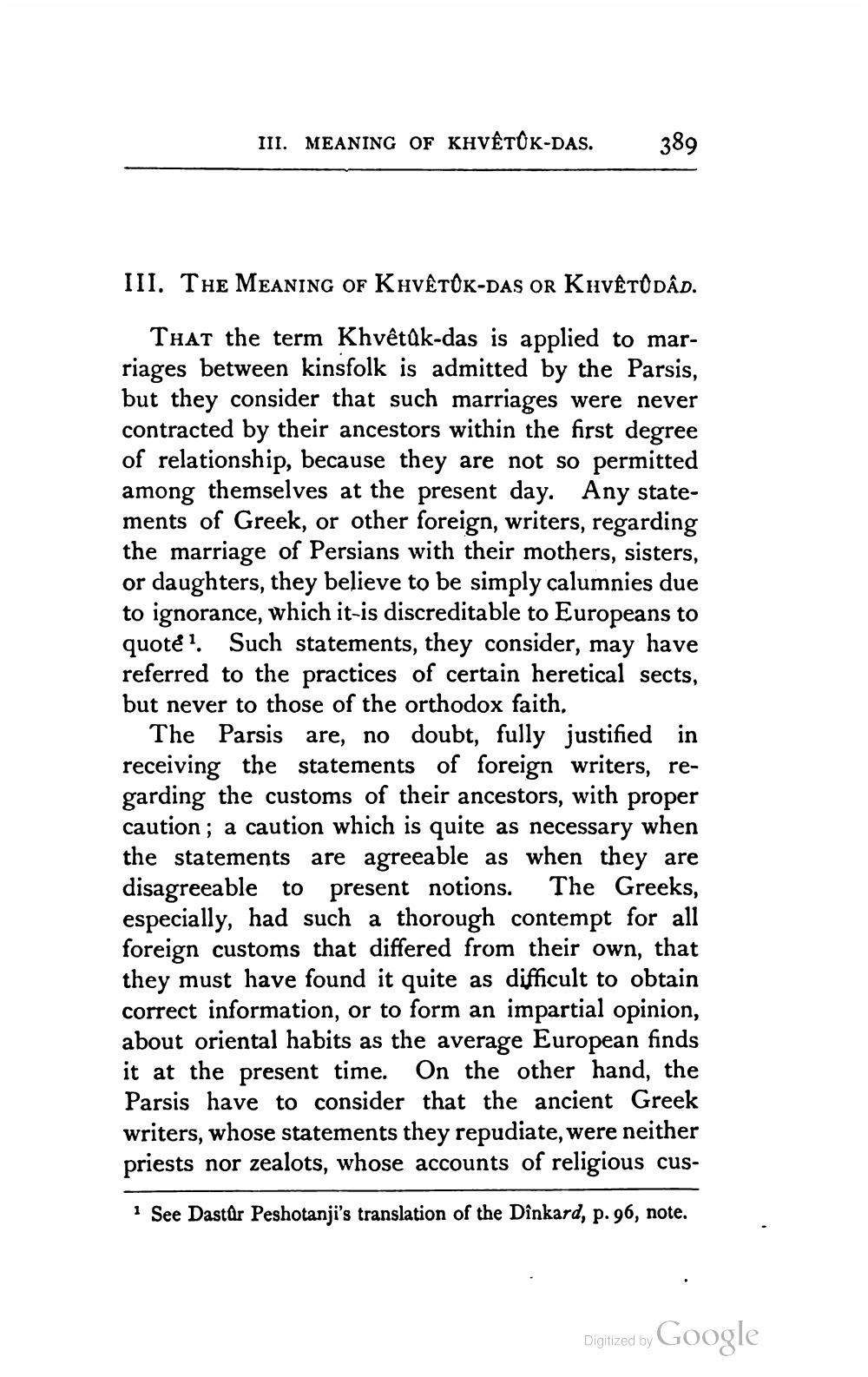________________
III. MEANING OF KHVỆTOK-DAS.
389
III. THE MEANING OF KuvỆTOK-DAS OR KuvẾTÔ DÂD.
That the term Khvêtûk-das is applied to marriages between kinsfolk is admitted by the Parsis, but they consider that such marriages were never contracted by their ancestors within the first degree of relationship, because they are not so permitted among themselves at the present day. Any statements of Greek, or other foreign, writers, regarding the marriage of Persians with their mothers, sisters, or daughters, they believe to be simply calumnies due to ignorance, which it is discreditable to Europeans to quote i. Such statements, they consider, may have referred to the practices of certain heretical sects, but never to those of the orthodox faith.
The Parsis are, no doubt, fully justified in receiving the statements of foreign writers, regarding the customs of their ancestors, with proper caution; a caution which is quite as necessary when the statements are agreeable as when they are disagreeable to present notions. The Greeks, especially, had such a thorough contempt for all foreign customs that differed from their own, that they must have found it quite as difficult to obtain correct information, or to form an impartial opinion, about oriental habits as the average European finds it at the present time. On the other hand, the Parsis have to consider that the ancient Greek writers, whose statements they repudiate, were neither priests nor zealots, whose accounts of religious cus
1 See Dastûr Peshotanji's translation of the Dinkard, p. 96, note.
Digitized by Google




